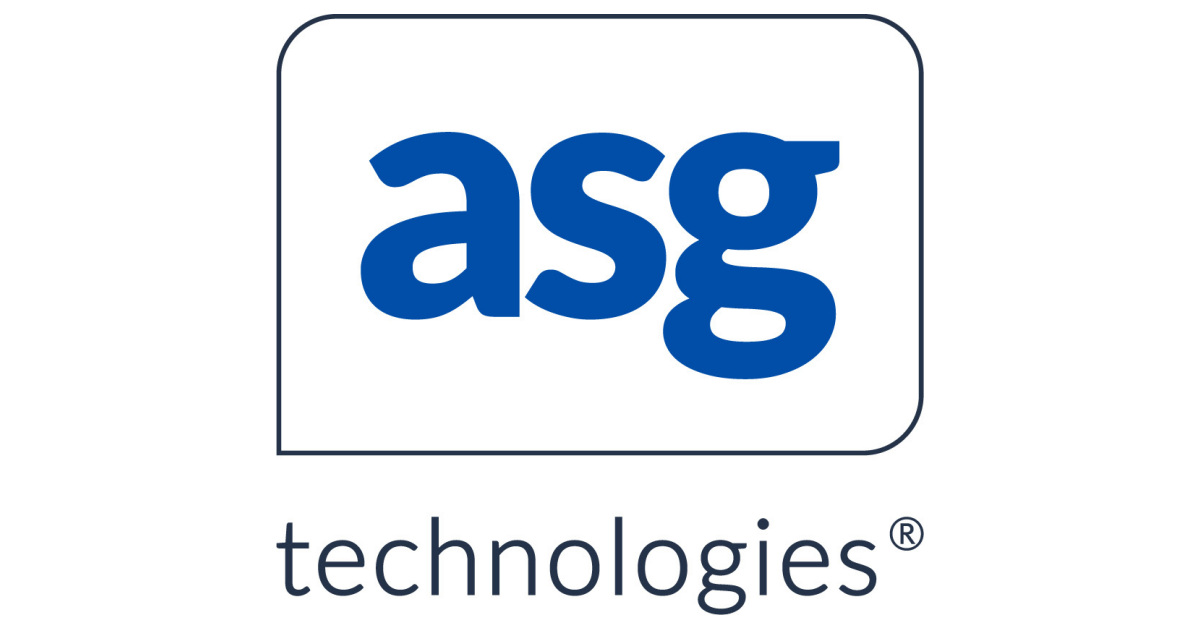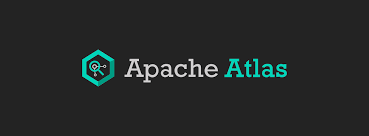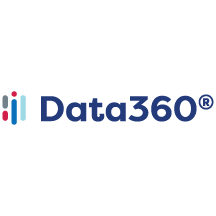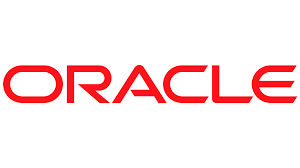As organizations continue to rely on data to make key business decisions, they must establish a robust data management plan to ensure that data across their organization is handled consistently and not misused.
This process of managing the availability, integrity, and confidentiality of enterprise data is termed Data Governance. An Effective Data Governance solution also helps businesses address data privacy and security issues that are increasingly taking center stage with rising data breaches over the past several years.
In this article, you will gain a better understanding of Data Governance software and its framework. You will also understand the need for Data Governance Tools. Moreover, this article provides the top 15 Data Governance Tools widely used in the industry.
Governing your data after extracting it from a diverse set of data sources like Databases, CRMs, Project management Tools, Streaming Services, and Marketing Platforms can be quite challenging.
This is where a simpler alternative like Hevo can save your day! Check out what Hevo offers you.
- You can unify your data from 150+ sources.
- It ensures the consistency of your data and removes inaccurate data after notifying you about it.
- It allows built-in transformations to make your data more compatible.
You can read about what our customers, like Fairmoney and Postman, want to say about us.
Try Hevo for Complex Data ExtractionTable of Contents
Top 15 Governance Tools
The use of proper Data Governance Tools is critical for successful and long-term Data Governance. Conducting a thorough data governance tools comparison is essential for organizations aiming to streamline their data management processes. Data Governance goals can be achieved more quickly and easily with the right tool. Some of the widely used Data Governance Tools are listed below:
| Tool Name | Key Features | Target Users | Deployment | Pricing Model |
| Alation Data Catalog | Collaborative data catalog, automated metadata ingestion | Enterprises, Data Teams | Cloud, On-premises | Subscription-based |
| Ataccama | Data quality management, automation of data governance | Data Analysts, Governance Teams | Cloud, On-premises | Subscription-based |
| Collibra | Data governance, compliance management, and business glossary | Enterprises, Data Stewards | Cloud, On-premises | Custom pricing |
| SAP Master Data Governance | Centralized master data management, integration with SAP tools | SAP users, Enterprises | On-premises, Cloud | Custom pricing |
| Informatica | Data quality, cataloging, data integration | Enterprises, IT Departments | Cloud, On-premises | Subscription-based |
| OvalEdge | Data lineage, quality metrics, and policy management | Data Teams, Analysts | Cloud, On-premises | Subscription-based |
| IBM Data Governance | Data lineage, quality metrics, and policy management | Enterprises, Compliance Teams | Cloud, On-premises | Custom pricing |
| Atlan | Collaboration platform, data discovery, workflow management | Data Teams, Analysts | Cloud | Subscription-based |
| erwin | Data modeling, data governance, metadata management | Data Architects, Governance Teams | On-premises, Cloud | Custom pricing |
| Alex Solutions | Data governance, metadata management, and compliance tracking | Enterprises, Regulatory Teams | Cloud, On-premises | Custom pricing |
| ASG Technologies | Data lineage, metadata management, and data quality tools | Enterprises, IT Departments | Cloud, On-premises | Custom pricing |
| Apache Atlas | Open-source data governance, metadata management | Developers, Data Engineers | On-premises | Free (open-source) |
| Data360 Govern | Data governance framework, data lineage, compliance | Enterprises, Data Stewards | Cloud | Subscription-based |
| OneTrust Data Governance | Compliance management, data inventory, policy management | Enterprises, Compliance Teams | Cloud | Subscription-based |
| Oracle Enterprise Metadata Management | Metadata management, data governance, lineage tracking | Enterprises, Data Managers | Cloud, On-premises | Custom pricing |
1) Alation Data Catalog
The Alation Data Catalog offers users a single point of reference for numerous data sources, making it easier to identify and locate the information they want. The Alation data catalog is one of those data catalog tools that aids in the automation of Governance operations, such as updating data dictionaries and training users about good Governance principles, as well as offering collaborative options for information sharing.
Price: On Request
Gartner Rating: 4.5
2) Ataccama
Ataccama is a Platform-as-a-Service for self-driven Data Management and Governance. It makes data administration simple with AI-driven automated capabilities. With a “self-driving” strategy aimed at automating, increasing efficiency, and convenience of use, Ataccama ONE automatically analyzes data quality and classifies data to help firms prioritize and concentrate. All essential data assets can have security and privacy regulations automatically enforced, making data available to those who need it.
Price: On Request
Gartner Rating: 4.3
3) Collibra
Collibra is a Data governance tool for enterprises that automates data operations and keeps cross-functional teams on the same page. It provides Natural Language Search, Data Governance Automation, and Data Stewardship.
Users can use Collibra’s interactive data lineage diagrams to graphically understand data elements like regulations, problems, relationships, and flow. It has its own data catalog powered by Machine Learning, which can be connected to the business glossary and governance standards.
Price: On Request
Gartner Rating: 4.4
4) SAP Master Data Governance
SAP Master Data Governance software(SAP MDG) is accessible on-premises or in the Cloud. It is developed to perform effective enterprise data management, decrease risk, improve compliance, and lower the total cost of ownership. SAP MDG consolidates master data and automates replication and syndication of master data throughout the system landscape. It also measures, monitors, and improves master data quality and workflows.
Price: On Request
Gartner Rating: 4.6
5) Informatica
Informatica offers a Data Governance platform and Compliance services. Its enterprise Data Governance solution is available in the Cloud or on-premises. It is the most tried-and-true solution, allowing business and IT to work together seamlessly.
Informatica creates a data catalog by scanning across many Cloud platforms automatically. It allows for data lineage tracking to be done automatically. It keeps track of data migration, from high-level system views to granular column-level lineage, and analyses the impact. Informatica dismantles silos and brings together IT, security, and business teams to guarantee that data is compliant with regulations such as GDPR.
Price: On Request
Gartner Rating: 4.3
6) OvalEdge
OvalEdge is a Data Catalog and a cost-effective Data Governance solution. Companies can adapt the tool to meet their business demands due to its agile architecture. OvalEdge also uses algorithms and user inputs to illustrate relationships between your data, giving you a 360-degree view of your data.
Data lineage tracking aids in the tracking of data from beginning to end, as well as any anomalies that may have happened along the way. Using a business dictionary, OvalEdge allows you to create data quality and data definition guidelines. You can also assign roles and responsibilities using OvalEdge’s policy controls.
Price: 100$/month, annually, for the starter pack.
Gartner Rating: 4.7
7) IBM Data Governance
IBM Data Governance assists you in locating data objects, as well as their physical location, definition, attributes, and application. It works with both structured and unstructured data. It can assist you in reducing compliance risks.
IBM Data Governance offers features such as a flexible Data Governance plan, Data Cataloging, and acquiring valuable data for Big Data initiatives. It also enables privacy and security features, such as the ability to secure personally identifiable information, predictive consumer intelligence, and personal health data.
Price:
- Lite Version: Free
- Standard: $300 per instance, with $0.50 per capacity unit-hour and $50 for each extra user.
- Professional: $7,000 per instance, with $0.40 per capacity unit-hour and $300 per extra user.
Gartner Rating: 4.2
8) Atlan
Atlan’s data workspace platform supports Data cataloging, Data Quality, Data Lineage, and Governance. For developing a shared understanding of data, the software includes a Google-like Search interface, automated Data Profiling, and a searchable Business Lexicon. No matter where your data flows, users can manage bandwidth utilization and adoption throughout an ecosystem using granular Governance and access restrictions.
Price: On Request
Gartner Rating: 4.5
9) erwin
erwin combines Data Governance, Enterprise Architecture, Business Process, and Data Modeling into one software platform. By linking physical metadata to particular business terminology, it allows customers to locate and harvest data, as well as arrange and deploy data sources. erwin can assess complicated lineages spanning systems and use cases by importing information from data integration tools and cloud-based platforms.
Price: On Request
Gartner Rating: 4.3
10) Alex Solutions
Alex’s technology-agnostic data catalog is available as a full Cloud or hybrid solution. It prides itself on its low total cost of ownership, embracing automation from the start to boost productivity and scalability. Alex is focused on the simplicity of deployment across many use cases as a single, out-of-the-box platform.
It can harvest and ingest metadata from a variety of platforms, both on-premises and in the cloud, and supports connectors for all major cloud providers. Alex’s automatic data lineage capability allows users to quickly alter the context between business, user, application, and technology lineages with only a few clicks.
Price: On Request
Gartner Rating: 4.8
11) ASG technologies

ASG Technologies, now owned by Rocket Software, offers a data intelligence platform called Rocket Data Intelligence (RDI) that addresses data governance needs. While not solely a data governance tool, ASG Technologies’ Rocket Data Intelligence offers a powerful, integrated platform for data discovery, lineage, and governance. It boasts strong capabilities like automated metadata & lineage tracking, built-in governance workflows, and role-based access control. However, consider its broader data intelligence focus and pricing structure before deciding if it aligns perfectly with your specific data governance needs.
Price: On Request
Gartner Rating: 4.2
12) Apache Atlas

Apache Atlas is among the best data governance tools. It is an open-source tool that is built upon a foundational set of metadata control and information governance talents for businesses with information-intensive platforms. It’s ordinarily designed to be used in Hadoop clusters. However, it is able to additionally trade metadata with gear and procedures out of doors in the Hadoop environment to permit integration with different structures for analytics applications. Using open source data governance tools allows for lower costs, greater flexibility, and community support.
Price: Open Source
Gartner Rating: 4.4
13) Data360 Govern

Data360 Govern, which is owned by Precisely, is also one of the best low-cost data governance tools. The tool offers real-time monitoring of information and helps numerous enterprise procedures and effects to assist businesses in meeting their enterprise goals, with dashboards and reviews that may be custom-designed to give customized insights. It additionally automates information governance workflows, metadata harvesting, and the uploading of information quality rankings from the partner Data360 DQ+ software program and other information quality tools from Precisely or rival vendors.
Price: On Request
Gartner Rating: 4.2
14) OneTrust Data Governance

OneTrust Data Governance is an AI-powered tool that automatically detects applications and data stores and inventories their data assets. It then uses AI and machine learning models to categorize, classify, enrich, and tag data sets. The tool can create a data catalog and dictionary, connect the catalog to a business glossary, and automatically apply governance policies and controls based on data classification. It includes over 500 pre-built connectors, custom connector creation, collaborative workflows, and functions for data lineage diagrams and regulatory compliance reports.
Price: On Request
Gartner Rating: 3.6
15) Oracle Enterprise Metadata Management

Oracle Enterprise Metadata Management (OEMM) is a tool that allows organizations to manage metadata from various data sources, including Oracle and non-Oracle systems. It provides data lineage tracing, impact analysis functions, and collaborative data governance features such as the ability to annotate and tag metadata. OEMM can also import existing metadata standards from Oracle and third-party systems, build business glossaries, and stitch together metadata from different sources. It offers versioning of metadata models and integrates with Oracle Enterprise Data Quality for a comprehensive approach to managing data governance.
Price: On Request
Gartner Rating: 4.3
What Key Features are a must-have in Data Governance Tools?
- Metadata management – The ability to automatically scan, catalog, and centralize metadata from different data sources is crucial. This provides visibility into what data exists, where it resides, who owns it, etc.
- Data lineage tracking – Understanding the origins and movement of data from source to destination is important for governance. Data lineage shows how data transforms over time and where it flows.
- Policy management – Tools should provide a way to create, manage, and enforce data policies, rules, and standards across the organization. This includes things like data security, access control, and data quality policies.
- Collaboration features – Features that enable stakeholders to work together, annotate metadata, discuss policies/issues, and share knowledge ultimately facilitate better governance.
- Issue tracking – Users should have the ability to flag data issues that need resolution and track remediation tasks. Integrations with the organization’s ticketing systems are ideal for centralized issue tracking.
- Automated reporting – Automated dashboards, notifications, and hosted reporting that provide visibility into governance metrics, policy violations, data quality stats, and more are tremendously helpful.
- Role-based access control – Governing data requires input from many different users, so tools need advanced permissions that allow appropriate access and actions based on defined user roles.
- Collaboration with other tools: By incorporating data ingestion tools into your data governance framework, you can ensure that data is properly handled and controlled from the moment it enters the system.
Choosing the Right Data Governance Tool
Selecting the right data governance tool is essential for effective data management and compliance. Some key factors to consider include:
- Functionality: You can evaluate the tools against functionalities such as data cataloging, data quality management, and metadata management.
- Scalability and Flexibility: Choose a tool that scales with your organization’s data needs and adapts to evolving requirements.
- Cost and Licensing: Take into consideration the type of pricing model and total cost of ownership for each of the tools. Some tools, such as IBM Data Governance, have enterprise-level features, but their prices vary if deployed or used differently.
- User Experience: Look for a user-friendly interface and strong support resources. OvalEdge and erwin are known for their intuitive dashboards and ease of use.
Learn More About:
Conclusion
In this article, you learned about Data Governance and understood the need for Data Governance Tools. You explored the best Data Governance Tools in the market. At the end of this article, you learned the various benefits offered by Data Governance Tools.
However, extracting complex data from a diverse set of data sources like Databases, CRMs, Project management Tools, Streaming Services, and Marketing Platforms can be quite challenging. This is where a simpler alternative like Hevo can save your day!
Share your experience with Data Governance Tools in the comments section below!
FAQs about Data Governance Tools
1. What is a data governance tool?
A data governance tool is software designed to manage and oversee the integrity, quality, security, and compliance of an organization’s data assets.
2. What are the 3 pillars of data governance?
The three pillars of data governance are:
1. Data Quality
2. Data Security and Privacy
3. Data Management and Stewardship
3. Is Collibra a data governance tool?
Yes, Collibra is a data governance tool. It provides a comprehensive platform designed to manage data governance, data stewardship, and data quality across an organization.










